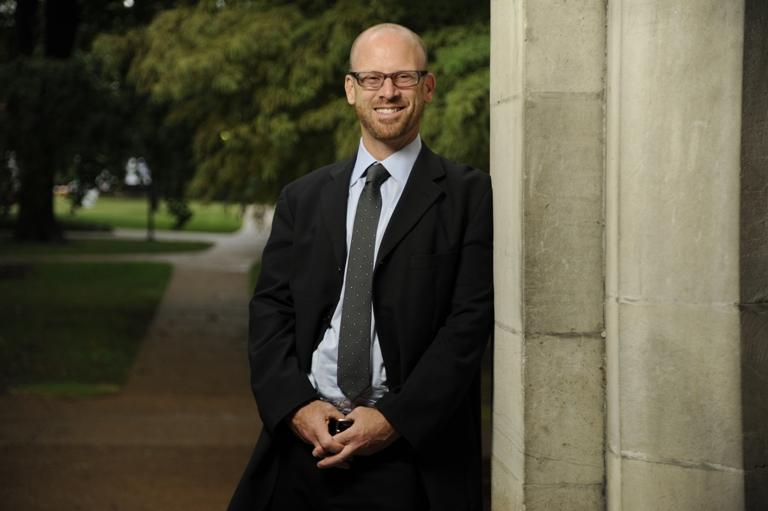The Medicine, Health, and Society (MHS) Major was introduced to the Vanderbilt undergraduate curriculum in 2007 with 40 students looking to enter the health profession. The interdisciplinary major was created by the university to educate these aspiring professionals about the effects social, economic and racial structures have on the US healthcare system and the biases surrounding attitudes about illness and health. Today over 500 students in total are declared MHS majors.
A study of the program’s effectiveness was conducted from August 2015 through December 2016 by current director and assistant directors of the MHS Center, Dr. Jonathan Metzl and Dr. JuLeigh Petty, along with Vanderbilt student Oluwatunmise Olowojoba. The study was published this past summer in the Social Science and Medicine Journal.
“There are two parts to how this major creates better professionals within the medical field,” Metzl said. “One is that just learning about disparity and health justice itself is an important skill that students are going to face as future clinicians. Just knowing how social factors like poverty or the poor health care system are linked to racial health disparities makes people more aware of the kinds of health problems they might see later in their career. The other part of it is that the skill of learning how structural racism works on a ground up level and involves learning about many other things about society like food distribution networks or how people get money to pay for their medication. In a way, learning about the structural component of structural racism, I think involves a lot of skills that teach you indirectly about just how illness circulates in American society.”
The MHS professors looked at 339 students, broken down into groups of MHS majors, pre-med STEM major seniors and first semester freshmen. By comparing results of the MHS students with students who had completed the pre-med track but majored in a traditional science field (biology, neuroscience, chemistry, etc.), as well as first semester freshmen who had not previously taken a Vanderbilt course, they hoped to measure the effects their classes had upon their students. Also, the addition of the freshmen to the analysis was meant to gauge whether their structural awareness resulted from students self-selecting the MHS major or from their training in the MHS curriculum, according to the study.
The study was implemented in two forms. First, there was a survey that asked for a self-evaluation of the students’ knowledge of the structural deficiencies within the system, as well as an actual test that verified their knowledge. The self-evaluation consisted of students self-reporting their understanding on a 5-point scale of the relationships of socioeconomic status and health, their knowledge of the American health care system and the Affordable Care Act (Obamacare) and their ability to work cooperatively with diverse populations.
We are trying to meet the needs of people going into multiple health professions who also care about issues like diversity and health economics
The knowledge based test covered topics such as obesity, heart disease and depression. Students were asked to explain causes behind various trends in health and identify the most important factors that contributed to those trends from a list of 14 potential causes, which included things like food access, access to health care, income, neighborhood, genetics, family lifestyle choices and more.
According to the survey, a majority (56.2 percent) of MHS seniors self reported having excellent knowledge of the healthcare system. MHS students also reported higher confidence than premed seniors in being prepared to work with diverse populations (87.8 percent to 15.9 percent), although freshmen had more confidence than both groups (93.5 percent).
According to one part of the test, MHS seniors were three times more likely than a premed senior to identify a structural factor to account for disparities in cardiac mortality throughout the country. Of the students who did not identify a structural factor for cardiac mortality or obesity, 81 percent of them had never taken an MHS course before.
Also measured in this study was the acceptance rate of MHS majors compared to various other STEM majors. MHS majors were accepted to 88 percent of hte medical schools they applied to, while other pre-med STEM majors like neuroscience and molecular and cellular biology were accepted into 72 and 78 percent of the schools they applied to, respectively.
Results like these matter to students like Alexis Gutierrez, a junior majoring in MHS. He is currently in the process of applying to medical school and was pleased with the study’s results.
“I chose the MHS major because I thought that it complemented the pre-med track and would make me a more well-rounded applicant,” Gutierrez said. “While I was learning all of the core of what I needed for the MCAT and for medical school, I felt like I was missing another aspect to my medical training. The MHS program was just what I was looking for in terms of going beyond the science side of medicine, and I’ve learned much more than I ever could have anticipated.”
To Metzl, that’s exactly why the program exists.
“We are trying to meet the needs of people going into multiple health professions who also care about issues like diversity and health economics,” Metzl said. “We feel like these kinds of skills are important to produce knowledgeable students who will go into these health professions and make a difference.”











